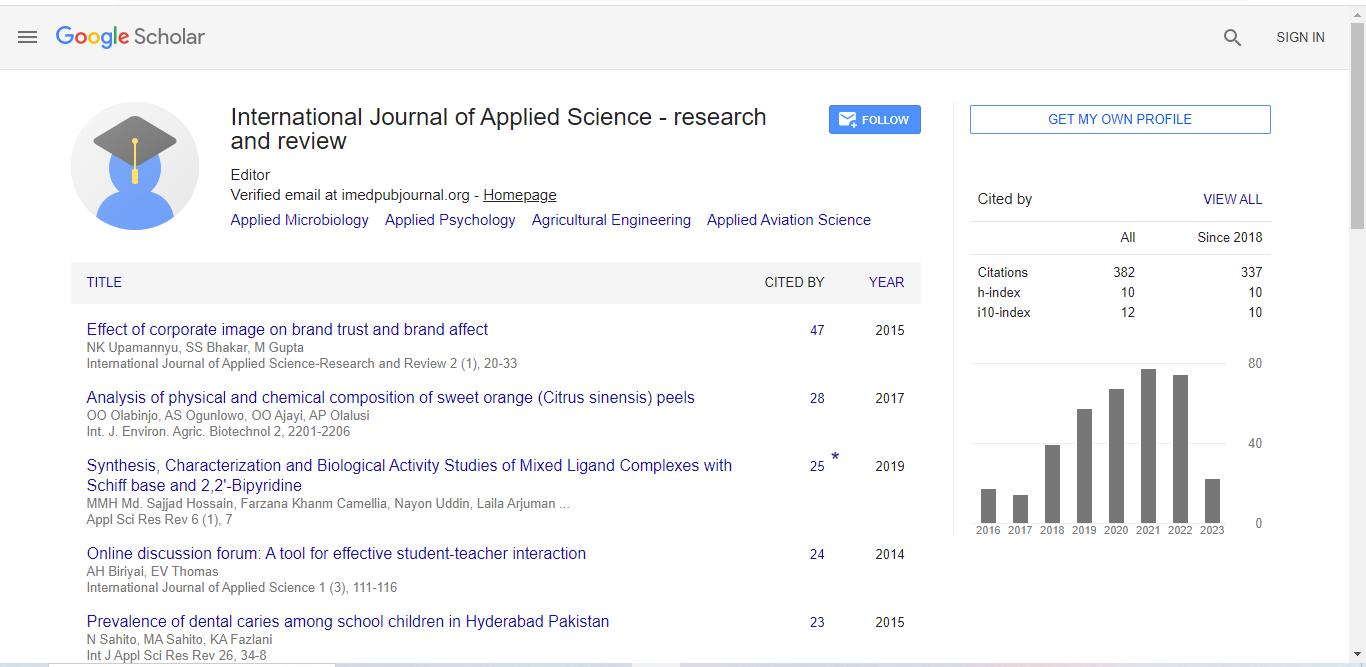Short Communication - (2024) Volume 11, Issue 4
Optimizing Port Efficiency in Turkey: An Integrated Approach Using Fuzzy Entropy and Fuzzy MARCOS
Marcos Haverhill*
Department of Applied Science, La Trobe University, Australia
*Correspondence:
Marcos Haverhill,
Department of Applied Science, La Trobe University,
Australia,
Email:
Received: 31-Jul-2024, Manuscript No. IPIAS-24-21468;
Editor assigned: 02-Aug-2024, Pre QC No. IPIAS-24-21468 (PQ);
Reviewed: 16-Aug-2024, QC No. IPIAS-24-21468;
Revised: 21-Aug-2024, Manuscript No. IPIAS-24-21468 (R);
Published:
28-Aug-2024, DOI: 10.36648/2394-9988-11.4.40
Introduction
Efficiency evaluation of Turkish ports is crucial for optimizing their
performance and competitiveness in the global maritime industry.
An effective approach to this evaluation involves using advanced
analytical methods that can accommodate the complexity and
variability inherent in port operations. One such approach is the
Integrated Fuzzy Entropy-Fuzzy MARCOS Analysis, which combines
two powerful fuzzy logic techniques to assess and enhance port
efficiency. The efficiency of ports can be evaluated through various
metrics, including operational performance, resource utilization,
and service quality. Ports play a vital role in international trade
and logistics, and their efficiency directly impacts economic performance,
supply chain effectiveness, and overall trade competitiveness.
Description
Traditional methods of port efficiency evaluation may not fully
capture the nuanced performance factors due to the complexity
and uncertainty involved. Thus, the use of advanced methods like
Fuzzy Entropy and Fuzzy MARCOS (Measurement of Alternatives
and Ranking according to COmpromise Solution) provides a more
nuanced and accurate assessment. Fuzzy Entropy is a technique
used to quantify the uncertainty and information content in a decision-
making process. In the context of port efficiency evaluation,
Fuzzy Entropy helps in understanding the degree of uncertainty
associated with various performance indicators. It measures the
amount of information or uncertainty present in the data, allowing
decision-makers to identify which performance metrics are most
reliable and which ones contribute more to the overall uncertainty.
By assessing the entropy levels of different performance indicators,
the method helps in distinguishing between critical factors
and those that have lesser impact.
Fuzzy MARCOS Analysis, on the other hand, is an advanced
multi-criteria decision-making method that helps in evaluating
and ranking alternatives based on a set of criteria. In port efficiency
evaluation, Fuzzy MARCOS incorporates fuzzy logic to handle
the inherent uncertainty and imprecision in the data. It involves
defining a set of criteria relevant to port performance, such as
cargo handling efficiency, turnaround time, safety standards, and
customer satisfaction. Each port is then assessed based on these
criteria using fuzzy logic to accommodate the subjective nature of
the evaluation. The Integrated Fuzzy Entropy-Fuzzy MARCOS Analysis
combines these two techniques to provide a comprehensive
efficiency evaluation. The process begins with the application of
Fuzzy Entropy to measure the uncertainty and reliability of various
performance metrics. This step helps in filtering out less reliable
indicators and focusing on those that provide meaningful insights
into port performance. The results from this analysis inform the
Fuzzy MARCOS method, which then evaluates and ranks the ports
based on the selected criteria. The integration of Fuzzy Entropy
with Fuzzy MARCOS enhances the accuracy and robustness of the
efficiency evaluation. Fuzzy Entropy provides a preliminary analysis
of data uncertainty, ensuring that the subsequent Fuzzy MARCOS
evaluation is based on reliable and relevant metrics. Fuzzy
MARCOS, with its ability to handle multiple criteria and incorporate
fuzzy logic, allows for a detailed assessment of each port’s
performance, considering both objective and subjective factors.
The practical application of this integrated approach involves several
steps. First, relevant performance indicators are identified and
quantified. Data is collected from various sources, including port
operations reports, financial statements, and customer feedback.
Fuzzy Entropy is then applied to this data to assess the level of
uncertainty and identify the most critical performance indicators.
Next, the Fuzzy MARCOS method is used to evaluate and rank the
ports based on the filtered performance indicators [1-4].
Conclusion
In summary, the Integrated Fuzzy Entropy-Fuzzy MARCOS Analysis offers a sophisticated approach to evaluating the efficiency of
Turkish ports. By combining Fuzzy Entropy’s capability to measure
data uncertainty with Fuzzy MARCOS’s multi-criteria decision-making
framework, this method provides a detailed and accurate assessment
of port performance. This approach helps in identifying
strengths and weaknesses, guiding improvements, and enhancing
the overall efficiency of port operations.
Acknowledgement
None.
Conflict Of Interest
The author declares there is no conflict of interest in publishing
this article.
References
- Reich BH, Wee SY (2006) Searching for knowledge in the PMBOK® Guide. Proj Manag J 37:11-26.
[Crossref] [Google Scholar]
- Valmohammadi C, Razi FF, Einy F (2021) Six sigma project selection using the hybrid approach FAHP-FTOPSIS and grey relational analysis model. IEEE Eng Manag Rev 49:134-146.
[Crossref] [Google Scholar]
- Ulubeyli S, Kazaz A (2016) Fuzzy multi-criteria decision making model for subcontractor selection in international construction projects. Technol Econ Dev Econ 22:210-234.
[Crossref] [Google Scholar]
- Jalota H, Thakur M, Mittal G (2017) A credibilistic decision support system for portfolio optimization. Appl Soft Comput 59:512-528.
[Crossref] [Google Scholar]
Citation: Haverhill M (2024) Optimizing Port Efficiency in Turkey: An Integrated Approach Using Fuzzy Entropy and Fuzzy MARCOS. Int J Appl Sci Res Rev. 11:40.
Copyright: © 2024 Haverhill M. This is an open-access article distributed under the terms of the Creative Commons Attribution License, which permits unrestricted use, distribution, and reproduction in any medium, provided the original author and source are credited.

